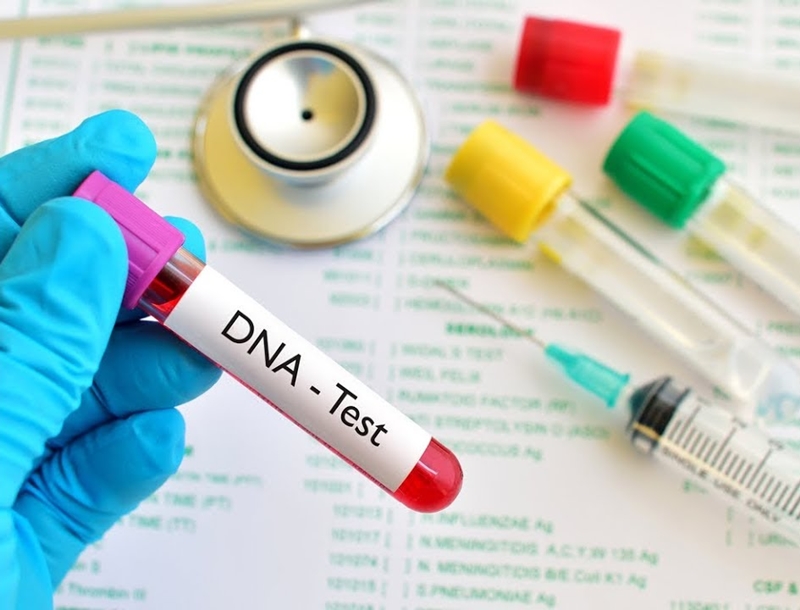Are you considering taking a DNA test to discover more about your ancestral roots? While these tests can provide valuable information, have you ever considered the potential impact on your overall well-being as a parent? In this blog post, we will explore just how much of an effect DNA testing can have on the body and mind of parents. From anxiety-inducing results to newfound genetic predispositions, join us as we delve into the complex world of DNA testing and parenting.
What is a DNA test?
DNA testing is a process of determining genetic information from a sample of DNA. Geneticists use this information to identify and diagnose diseases, predict an individual’s propensity for certain behaviors, and to search for family relationships.
There are a number of different DNA test that are available and they can be used in a variety of ways. Some tests can be used to diagnose genetic diseases or conditions, while others can be used to find familial relationships. In either case, the results of the test can have a significant impact on the health and well-being of the parent who takes it.
Some people worry that DNA testing will lead to discrimination or familial isolation. However, genetic testing is actually becoming more common as scientists learn more about its potential benefits. And while there are still some unknowns about DNA testing, researchers are working hard to address them. In the meantime, parents should talk with their healthcare providers about which tests might be best for them and their families.
How Does A DNA Test Work?
DNA tests are becoming more and more common because they can provide information about a person’s ancestry and genetic history. DNA tests can also be used to help identify potential health risks.
A DNA test is done by taking a sample of your hair or saliva. The sample is then sent to a laboratory for analysis. The results of the test will tell you how much of your ancestry is European, African, Asian, Native American or some other type of background.
The results of a DNA test can have a huge impact on a parent’s body’s well-being. If the test shows that the parent has European ancestry, for example, that could mean that they are at increased risk for certain health conditions. This information would need to be discussed with a healthcare provider before making any decisions about how to use it.
What Are the Benefits Of A DNA Test?
DNA tests have been around for a few years now and they are definitely becoming more popular. The benefits of a DNA test are vast and varied, but here are some of the most common reasons people take them:
1. To learn more about their ancestry
2. To find out if they have any genetic diseases
3. To find out more about their family history
4. To learn more about their culture
5. To find out more about their biological connections to other people
6. To determine if they are matches for other families who have taken similar tests
7. To learn how to better protect themselves against disease
Who Is Eligible for A DNA Test?
DNA testing is available to anyone who desires it. In order to be eligible for a DNA test, you must have at least one parent who is deceased. If both parents are deceased, the test can still be performed on your child if they are of biological age and agree to have their DNA tested. If only one parent is deceased, the test can still be performed on the child if they are of biological age and their guardian authorized the test.
DNA tests offer many benefits for those who take them. They provide information about genetic disorders that may affect an individual’s health or appearance. This information can be used by a person to make informed decisions about their health care.
The results of a DNA test can also provide peace of mind for family members who believe that something might have caused the death of a loved one. Knowing what caused death may help family members deal with their grief in a more comfortable way.
What Should You Do If You Receive A Positive DNA Test Result?
If you are a parent who has received a positive DNA test result, your first thought may be to ask how the test was conducted and what the implications are. It is important to remember that no one can predict with certainty what the future holds, but there are some things you can do to support yourself and your child.
First and foremost, know that you are not alone. There are many parents who have received positive DNA test results, and many more who are waiting to find out their results. If you need someone to talk to, or if you just want to share your story, there is a community of people out there who understand what you’re going through.
Another thing to remember is that this isn’t necessarily a negative thing. Many people believe that getting a positive DNA test result means that their child is likely related to them in some way. This can be an exciting discovery for both parents and children alike, regardless of whether or not they plan on pursuing any kind of relationship with each other.
Ultimately, it’s up to each individual parent to decide what action he or she will take based on the positive DNA test result. Some people choose to keep the news secret for now in order to avoid pressure from others, while others go public with the information as soon as possible in order to gain support from family and friends.







Be First to Comment